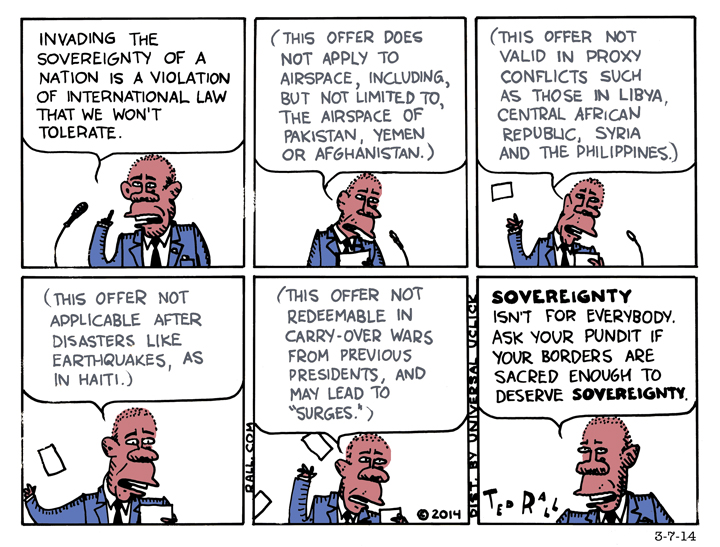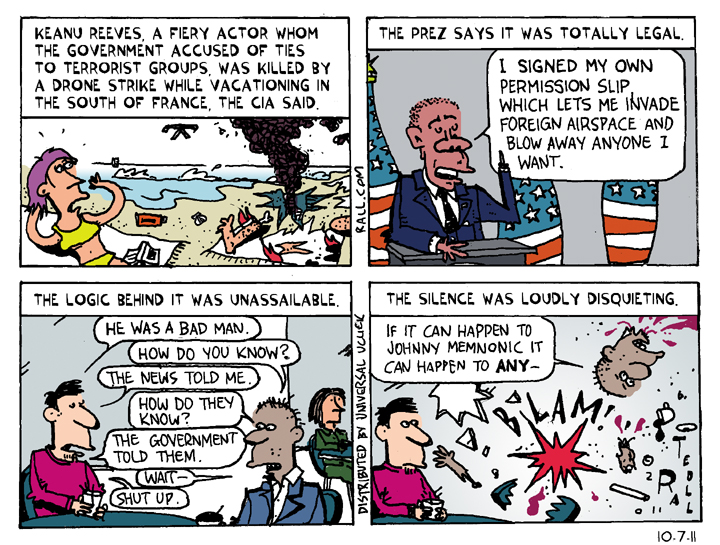
“Thou shalt not kill” is probably the oldest and most widespread moral and legal edict in human civilization, common to nearly every culture. However, there is one universal exception: even in countries that prohibit capital punishment and euthanasia, murder is permitted in self-defense.
At this writing, Israel has murdered more than 7,000 Gazan residents over the last three weeks. Israel and its supports say this bloodbath is justified as self-defense. “Israel has a right to defend itself and its people,” President Biden said on October 7th, hours after Hamas fighters killed more than 1,400 Israelis.
Is it really “self-defense”?
Israel is framing its war against Gaza as a nation’s legitimate right, under international law, to defend itself. “We are in a war for our sovereignty, for our existence, and we have set ourselves two fundamental objectives: to eradicate Hamas’s military and governmental capabilities and to do everything possible to bring the hostages held by the Palestinian Islamist group back home,” Israeli Prime Minister Benjamin Netanyahu told TV viewers. “There is no place for a balanced approach. Hamas must be erased off the face of the planet!” added Israeli Foreign Minister Eli Cohen.
There is nothing balanced about Israel’s response. Carpet bombing has destroyed nearly half the homes in the Gaza Strip. Israel has killed many times more Palestinian civilians than it lost on October 7th. A ground invasion will unleash more misery and mayhem.
Reasonable people may disagree over whether Israel’s response is justified or likely to prove effective.
No one should call it self-defense.
International law clearly governs how a nation like Israel is supposed to respond to an attack like October 7th. Article 51 of the U.N. Charter permits “self-defense if an armed attack occurs against a Member of the United Nations”—the exact situation here—“until the [U.N.] Security Council has taken measures necessary to maintain international peace and security.” As a U.N. member state, Israel should have requested assistance from the Security Council. They still ought to.
Israel’s claim to self-defense ended hours after the Hamas attack, when the IDF had killed or routed all Hamas fighters on Israeli territory and retaken control of the areas that had previously been overrun. The status quo ante was restored as of October 8th, with the exception of the more than 200 hostages seized from Israel and now held by Hamas in Gaza.
After Israel secured the areas broached by Hamas, a different body of law applied. Israel’s bombing campaign, which began on October 8th, might only be justified as a preemptive act of self-defense—a military campaign to prevent future terrorist attacks by Hamas. The Bush Administration claimed that its invasion of Iraq fell into this category, but that war clearly failed the so-called “Caroline test” formulated by the U.S. in the 19th century and which now guides international law. In 1837, Secretary of State Daniel Webster declared that a nation-state could only justify the use of military force in a case of imminent threat that was “instant, overwhelming, leaving no choice of means, and no moment of deliberation” and, these conditions being satisfied, military action should be proportional: “nothing unreasonable or excessive; since the act, justified by the necessity of self-defense, must be limited by that necessity, and kept clearly within it.”
Self-defense is not a blank check for unlimited vengeance or retribution. Being angry or insulted or traumatized does not justify revenge. A nation-state is only permitted to apply the bare minimum of force necessary to repel or neutralize a threat.
That’s not what Israel is doing to Gaza. Dropping 8,000 bombs on a tiny densely-populated area, cutting power and communications and indiscriminate assaults are not needed to keep Hamas from reentering Israel. Netanyahu’s stated goal of regime change, toppling the Hamas government, is hardly a bare minimum requirement to reduce the threat to minimal levels. It is maximalist. It is illegal.
It is an obscenity.
If anyone doubted that Israel has already gone far beyond what is permitted under international law, the heated rhetoric of Israel’s leaders and its patron the U.S. make that clear: the State Department sent internal memos to its officials warning them not to use the phrases “de-escalation/ceasefire;” “end to violence/bloodshed” or “restoring calm.”
When you’re censoring calls for calm, you’re probably on the wrong side of the law.
What constitutes self-defense for a nation-state is similar to that for an individual. Laws in the U.S. vary by state; Florida’s “stand your ground” law grants more leeway than New York, which requires you to retreat if possible and only permits you to use deadly force if you believe you or someone else are at imminent risk of physical harm. Basically, though, self-defense as a defense to a murder or manslaughter charge ends when the threat, which must be substantial and likely to occur, ends.
May I kill a robber who points a gun at me? Maybe. The moment he drops his weapon and turns tail, however, the answer is no. If at that point an assailant has hurt and/or robbed me, it is completely understandable that I might want to chase him down and hurt him to get even. It would also be illegal.
What should I do, nothing? No. I should call the cops. For a nation-state the U.N., not Israel or the U.S., is the world’s policeman. Israel should request assistance from the U.N.
Of course, a threat does remain from Hamas. Specifically, Israeli hostages are in danger. Rockets are fired into Israel. But neither justifies carpet-bombing or a ground invasion.
Bombing actually imperils the hostages. Hamas’ primitive rockets without guidance systems kill an average of three Israelis a year. As deplorable and tragic as those killings are, a bombing campaign that has killed over 7,000 people in three weeks is wildly disproportionate under the Caroline test.
The “rules-based international order” has obviously broken down. Who can remember the last time U.N. troops parachuted into a crisis zone in order to establish peace and order, much less did it well? Israel can be forgiven for dismissing that option out of hand. But just because everyone breaks the rules doesn’t mean they’re not still the rules.
What Israel is doing can be characterized in many ways.
But it’s not “self-defense.”
(Ted Rall (Twitter: @tedrall), the political cartoonist, columnist and graphic novelist, co-hosts the left-vs-right DMZ America podcast with fellow cartoonist Scott Stantis. You can support Ted’s hard-hitting political cartoons and columns and see his work first by sponsoring his work on Patreon.)



